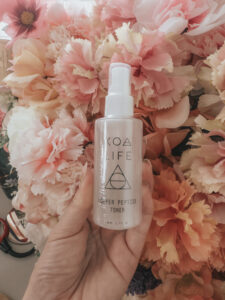By Dr. Cliff Han, Founder — AllerPops
Myths surrounding allergies are extremely common and, like pollen, often circulate widely and persistently, leading to widespread confusion and misinformation. The truth is that allergies affect 1 in 3 Americans, making them one of the most common chronic conditions in the US, according to a recent survey by the Asthma and Allergy Foundation of America. Whether exploring an old, dusty building or traipsing through a meadow on a warm spring day, there’s a good chance you or one of your companions will experience some extent of allergic reaction.
Allergies occur when the immune system mistakes harmless substances like pollen, dust mites, or certain foods for dangerous invaders. As a result, the immune system overreacts and causes physiological symptoms like sneezing, runny nose, and itchy eyes.
Debunking common allergy myths is crucial in helping people understand and manage their allergies. In this article, I will help clear up some of the confusion around common allergy myths and provide accurate information about allergies and how they can best be treated.
1. Moving eliminates allergies
While it may seem logical that moving to a different climate or environment could cure allergies, this is a common myth. Unfortunately, the relief is often temporary, and symptoms will eventually return. This is because the hypersensitive immune system will generate new sensitivities over time by creating new antibodies against the allergens at new locations to which one was previously not exposed.
Instead of moving, it is more effective to manage the symptoms of allergies through methods such as allergy medications, which can reduce the activity of the immune system when there is no infection. Additionally, natural supplements like AllerPops — which nourish the beneficial bacteria in the mouth and airway — can help address the lack of good bacteria that can lead to hypersensitive immune responses.
2. You can outgrow allergies
While some children may experience a reduction in allergy symptoms as they age, research has shown that only a small percentage of children with allergies outgrow them by the time they reach adulthood. However, for some individuals, their allergies may completely disappear without explanation. This seemingly random occurrence has a biological foundation in bacteria that live with us, although the exact mechanism is not fully understood by many.
According to a study from the Johns Hopkins Children’s Center, milk and egg allergies are more persistent and, therefore, more difficult to outgrow. Additionally, a recent report from the Centers for Disease Control and Prevention estimates that all food allergies are on the rise and that only an extremely small percentage of children outgrow them.
3. Allergies are uncurable
Unfortunately, allergies are chronic conditions, meaning strategies for their long-term management are often necessary. While over-the-counter medications can provide relief, users must be aware of their potential side effects.
Antihistamines, for example, can cause drowsiness, dry mouth, and blurred vision, while decongestants can cause increased heart rate, elevated blood pressure, and insomnia. Immunotherapy can also cause itching, swelling, and redness at the injection site.
It’s important to discuss potential side effects with a healthcare provider and adjust the dosage or switch medications if needed. More natural supplements that have had their efficacy confirmed and supported by independent clinical trials and biomedical research, such as AllerPops, can provide sufferers with long-lasting relief by addressing the underlying cause of allergies.
While allergies are becoming curable with a better understanding of their root cause, the mainstream still labels the conditions as uncurable.
4. Allergies only affect children
While children are more likely to develop allergies due to certain factors, such as antibiotics that disrupt the balance of bacteria in their mouth, allergies can affect people of any age. allergies can affect people of any age. Avoiding allergens is the most effective way to prevent symptoms for some people.
Additionally, natural supplements like AllerPops can address the underlying cause of allergies to provide long-lasting relief. However, it’s essential to always consult with a healthcare provider before starting any new treatments.
Overall, the perpetuation of allergy myths can have serious consequences — ranging from benign misunderstandings to potentially dangerous outcomes — highlighting the need for accurate information and education regarding allergies. By debunking common allergy myths and providing accurate information, we can help people better understand and manage their allergies, leading to improved quality of life.
— Dr. Cliff Han, founder of AllerPops, was a biologist for 28 years and a former medical doctor. He participated in the Human Genome Project and authored more than 300 peer-reviewed publications. He is a scientist with the heart of an entrepreneur. He’s been featured in NY Weekly among other publications.










